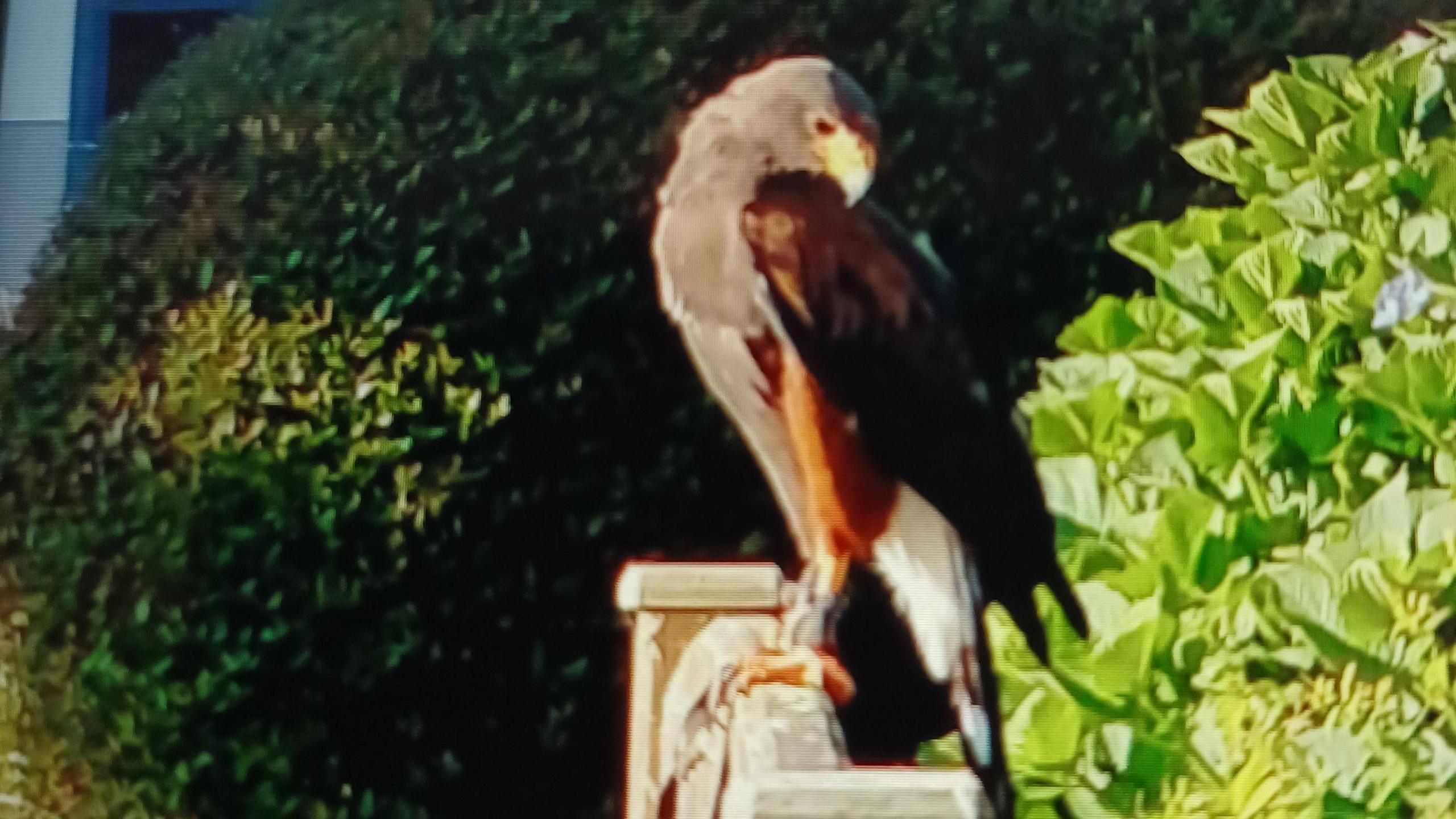The birds of prey providing hospital pest control
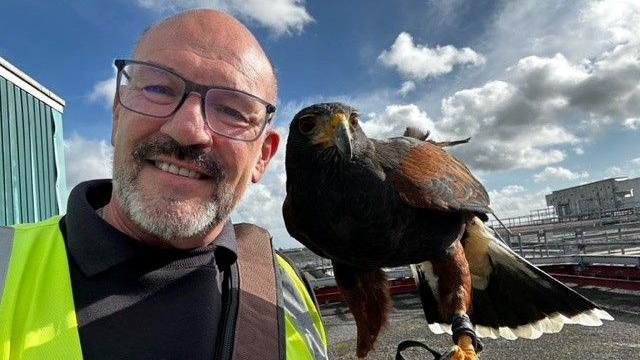
Urban Wings owner Andy Crowle said he did not encourage his birds of prey to kill
- Published
For almost 10 years birds have been scared away from a Hampshire hospital thanks to a local falconry business.
Andy Crowle, owner of Urban Wings, said his birds of prey also deter pigeons and seagulls from nesting around shops and businesses.
One of his Harris hawks, Willow, is mainly flown from the Southampton General Hospital to make feral pigeons think she has taken up residence.
Mr Crowle said, left to their own devices, birds can cause thousands of pounds worth of damage and even become a health hazard.
He said his hawks provided a "non-lethal" pest control solution and were "not encouraged to kill".
The company has Harris hawks, a Saker falcon, an Indian eagle owl and kestrels.
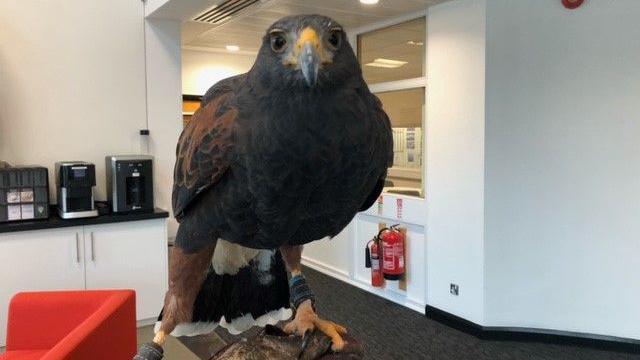
Willow the Harris hawk has been keeping unwanted birds away from Southampton General Hospital for about nine years
In an interview for BBC Radio Solent, Mr Crowle said Willow had been serving the hospital, where pigeons were "the main culprits", for about nine years.
"Probably over a thousand pigeons live on the site, creating about ten tonnes of poo a year," he said.
"At a hospital, that is quite dangerous - you've got patients that are obviously low immunity.
"If they breathe in the dust from pigeon poo, it can lead to pneumonia."
He added that they were also "messing on the equipment on the roof".
"The hospital has got lots of air conditioning and blowers that were costing a lot of money to keep clean and sterile," he said
"So our job was to turn up and make the pigeons believe that birds of prey have taken up residence."
He said initially, they went five days a week, eight hours a day, with a team of birds.
Over a period of time, the pigeons "realised that it's not a safe place to nest" and their numbers started going down after about three years.
"It's a huge commitment," Mr Crowle said.
"As soon as you stop, within six months they would be back in nesting everywhere."
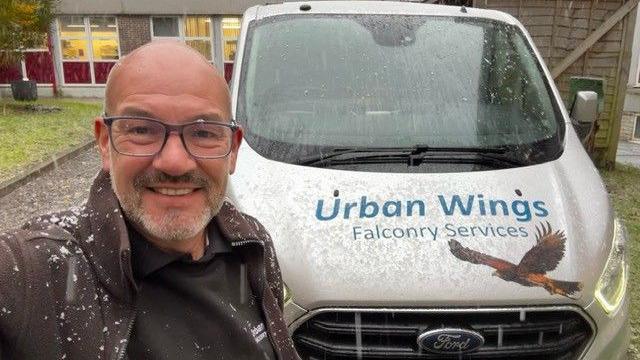
Urban Wings has Harris hawks, a Saker falcon, an Indian eagle owl and kestrels
He described the birds of prey as a generally "non-lethal deterrent".
"You could hire somebody with a gun to go and shoot [unwanted birds] but that is not seen as an ethical way," he said.
"Willow hasn't killed anything in about five years; my hawk, Freddie, who is about five or six, has never killed a living thing in his life.
"They are not encouraged to kill because it makes my job much harder."
Mr Crowle said, during the summer months, the company moved on to gull control.
"One factory was spending about £15,000 a year, tidying up after them."
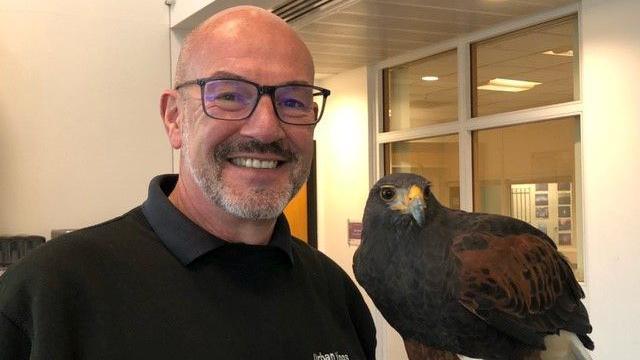
Mr Crowle said he got "lovely reactions" from people seeing him with his birds in the community
He said the training was about "gradually building up the complexity".
"We start off trying to get the bird to hop to a fist for a treat," he said. "Initially, they do not even want to come near you."
He said it was "a matter of gently enticing them" and getting them "to fly to".
He got "lovely reactions" from people seeing him with his birds out and about in the community, he said.
"I rarely get very far anywhere without being stopped for a photo."
Get in touch
Do you have a story BBC Hampshire & Isle of Wight should cover?
You can follow BBC Hampshire & Isle of Wight on Facebook, external, X (Twitter), external, or Instagram, external.
Related topics
- Published7 November 2024
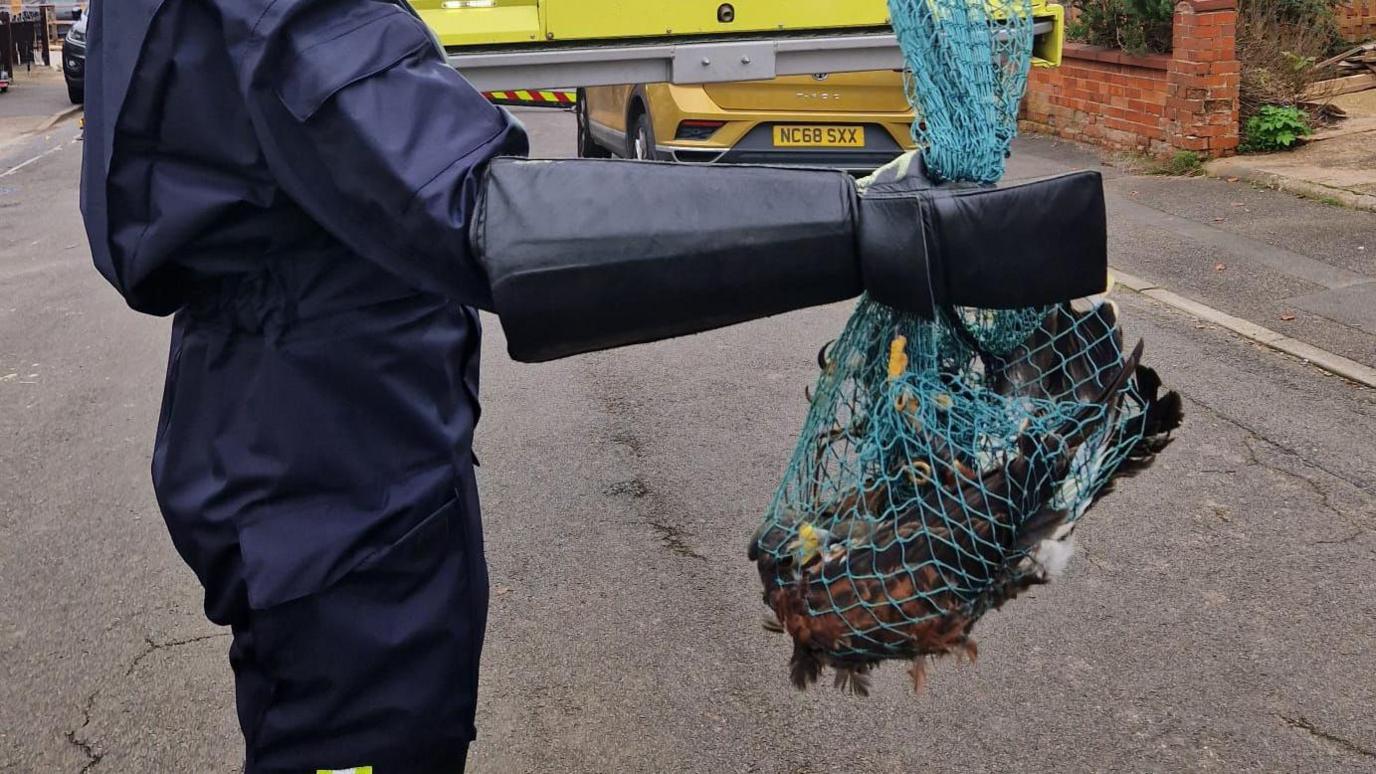
- Published27 August 2024
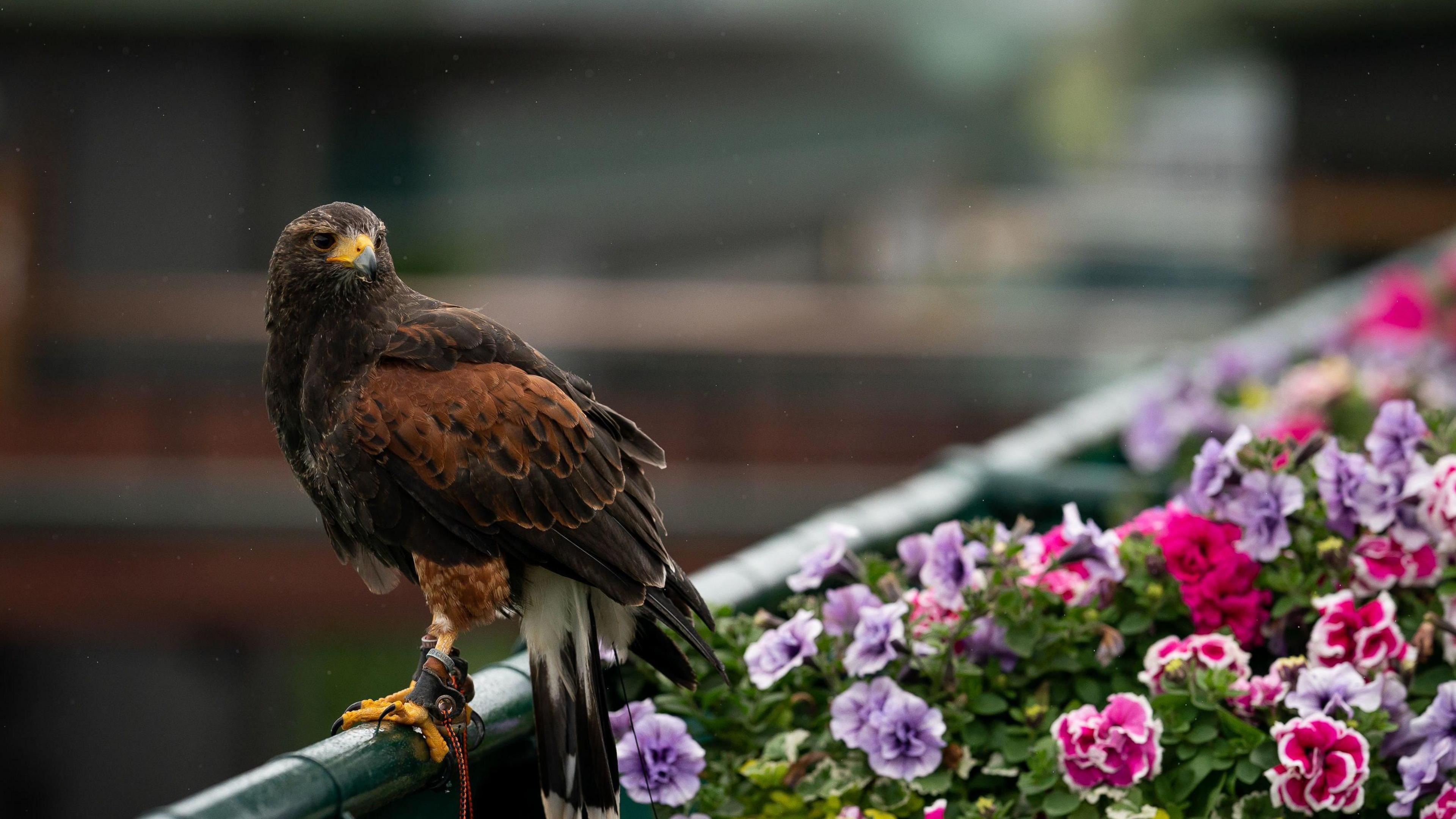
- Published8 July 2024
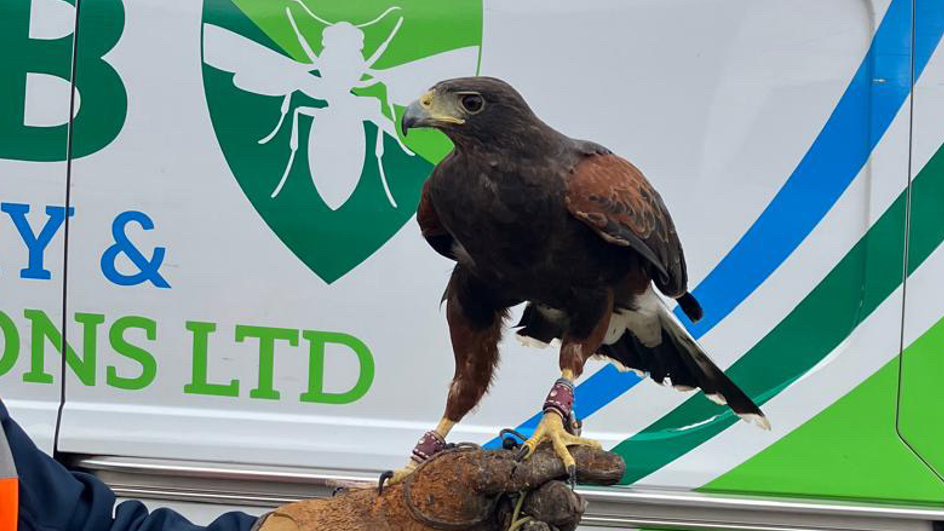
- Published12 July 2024
